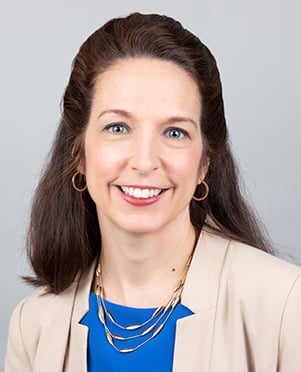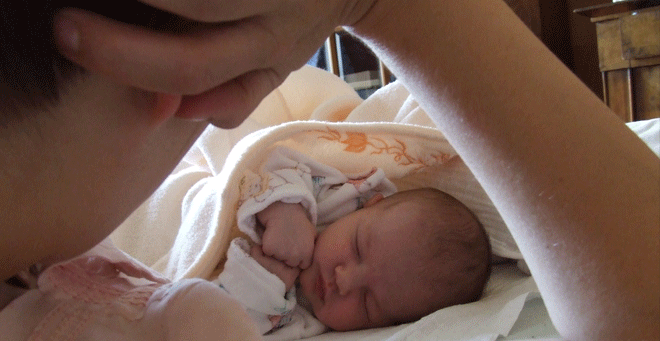A new study by UMass Chan Medical School has important implications for the potential to reach a wide population with perinatal depression in a sustainable way, according to principal investigator Nancy Byatt, DO, MS’15, MBA, professor of psychiatry, obstetrics & gynecology, and population & quantitative health sciences.

The study, published in Lancet Public Health, compared statewide versus intensive practice-level support for screening, assessment and treatment of perinatal depression and found the two models were equally effective in improving depression symptoms, treatment initiation and sustainment rates.
“Right now, mental health is the leading cause of pregnancy-related death and maternal mortality,” said co-principal investigator Tiffany Moore Simas, MD’00, MPH, MEd, the Donna M. and Robert J. Manning Chair in Obstetrics and Gynecology, chair and professor of obstetrics & gynecology, and professor of pediatrics, psychiatry and population & quantitative health sciences. “There’s still obviously room for improvement, but we have demonstrated to some extent we can help obstetric care clinicians and those caring for pregnant, postpartum and lactating individuals address the mental health needs of their patients.”
The study involved 10 obstetrics practices in Massachusetts that were randomly assigned to receive either the Massachusetts Child Psychiatry Access Program (MCPAP) for Moms, a statewide, population-based program, or Program in Support of Moms (PRISM), which includes MCPAP for Moms plus a proactive, multifaceted obstetric practice-level intervention with intensive implementation support.
Researchers followed 312 patient participants from these practices who met screening criteria for perinatal depression for 11 to 13 months postpartum.
Average patient perinatal depression scores decreased by a clinically significant amount under both models of care. There were no statistically significant differences in outcomes between the two groups.

Launched statewide in 2014, MCPAP for Moms, developed by Dr. Byatt and colleagues at UMass Chan, makes expert psychiatric advice a phone call away for obstetric, pediatric, family medicine and psychiatric providers. Through the program, these frontline providers can access online training, screening, diagnosis and treatment toolkits, as well as telephone and face-to-face psychiatric consultation, intended to address the mental health needs of pregnant and postpartum individuals.
Practices enrolled in the PRISM model received, in addition to the resources of MCPAP for Moms, regular meetings with investigators to set goals for depression care and to receive support in implementing workflows for identifying and working with patients with perinatal depression. “In a very crystallized and pragmatic way, we’d help them implement the entire depression care pathway in their practices,” Dr. Moore Simas said.
“From a public health perspective, programs modeled on MCPAP for Moms are now in 28 states across the country and they have the potential to reach 65 percent of the 3.8 million births nationwide each year,” said Byatt. “We now have data that suggests, at least with the Massachusetts version of MCPAP for Moms, patients served by obstetric practices that use the model experience an improvement in depression symptoms.”
Byatt added that patients with perinatal depression who were connected to MCPAP for Moms had higher rates of initiating and sustaining treatment, compared with previous studies of mothers screened for depression. However, a majority of patients in this study with depressive symptoms still did not initiate or sustain treatment, which the authors concluded needs to be addressed in future studies.


